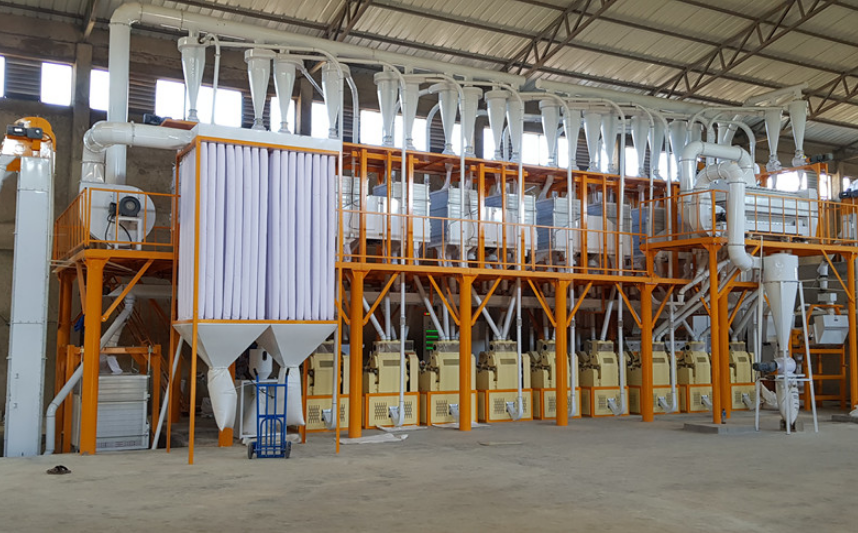Factors about Purchasing an Automatic Maize Flour Mill Plant
Investing in an automatic maize flour mill plant is a significant decision, especially if you're in the business of producing maize-based products like cornmeal, grits, or maize flour. To ensure you make an informed choice and select the right equipment for your needs, there are several key factors to consider before making your purchase. Let's explore these critical considerations in detail:
1. Production Capacity
The first and foremost factor to contemplate is the production capacity of the maize flour mill plant. Your choice should be aligned with your current production requirements and future growth projections. Maize mill plants come in various sizes, from small-scale units suitable for local markets to large-scale industrial plants capable of processing maize on a massive scale. Ensure the capacity of the plant aligns with your current and anticipated production needs.
2. Technology and Automation
Modern automatic maize flour mill plants are equipped with advanced technology and automation features that can significantly enhance efficiency. The level of automation you require depends on your production scale and budget. Automated features often include maize cleaning, de-germination, milling, and packaging. Automation not only boosts productivity but also reduces labor costs and the risk of errors.
3. Maize Cleaning and Pre-processing
The quality of the final maize flour product hinges on the cleanliness and pre-processing of maize kernels. Ensure the plant you choose has an efficient maize cleaning and pre-processing system in place. This system should be capable of removing impurities, stones, husks, and foreign materials from the maize before milling. A robust cleaning system will help maintain the quality and purity of the maize flour.
4. Flour Quality and Consistency
The quality and consistency of the maize flour produced by the plant are paramount, especially if you cater to customers with specific quality requirements. Seek a plant that offers precise control over factors like flour texture, fineness, and moisture content. The ability to adjust these parameters ensures you can produce maize flour that meets various industry standards and customer preferences.
5. Maintenance and Durability
Consider the maintenance requirements and durability of the maize flour mill plant. A reliable and durable plant will minimize downtime and repair costs. Check the quality of materials used in construction, the reputation of the manufacturer, and the availability of spare parts. Inquire about the manufacturer's warranty and after-sales support to ensure that any issues can be promptly addressed.
Fully Automatic Flour Mill Plant Price
6. Energy Efficiency
Energy costs can be a substantial expense in maize milling operations. Assess the energy efficiency of the plant you're considering. Look for features such as energy-efficient motors, power-saving technologies, and optimized milling processes that help reduce energy consumption. An energy-efficient plant not only saves money but also reduces your environmental footprint.
7. Space and Layout
Evaluate the available space in your facility and the layout requirements for the maize flour mill plant. Ensure that the plant can be installed and configured in your space without causing disruptions to other production processes. Consider factors like floor space, ceiling height, and accessibility for maintenance and cleaning.
8. Regulatory Compliance
Compliance with food safety and quality regulations is imperative in the food processing industry. Make sure the maize flour mill plant you choose meets the necessary regulatory standards and certifications. This includes adherence to hygiene and safety guidelines, as well as compliance with local and international quality standards.
9. Budget and Return on Investment (ROI)
Determine your budget for the maize flour mill plant and calculate the expected ROI. While advanced features can be appealing, it's essential to balance your budget with expected returns. Consider factors like operating costs, labor savings, increased production capacity, and the potential to enter new markets when assessing the ROI.
10. User-Friendliness and Training
Ease of use is crucial to reduce the learning curve for your operators. Ensure that the maize flour milling plant comes with user-friendly controls and interfaces. Additionally, inquire about the training and support provided by the manufacturer to ensure your staff can operate the plant efficiently and troubleshoot common issues.
11. Customization Options
Every maize milling operation is unique, and your plant should be adaptable to your specific needs. Check if the manufacturer offers customization options to tailor the plant to your requirements. This might include the ability to process different maize varieties, adjust milling parameters, or incorporate specific features.
12. References and Reputation
Before finalizing your purchase, research the manufacturer's reputation and ask for references from other businesses that have purchased the same maize flour mill plant. Hearing about the experiences of others can provide valuable insights into the plant's performance, reliability, and customer support.
Conclusion
Selecting the right automatic maize flour mill plant is crucial for the success of your maize milling business. By carefully considering these key factors, you can make an informed decision that aligns with your production goals and ensures the long-term profitability of your maize processing operation. Keep in mind that the right plant not only meets your current needs but also prepares your business for future growth and challenges in the competitive maize milling industry.

评论
发表评论